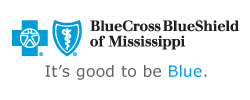Telephone Scams
We recently received a number of complaints regarding robocall scams with callers identifying themselves as representatives of “Blue Cross Blue Shield.” Individuals posing as Blue Cross & Blue Shield of Mississippi representatives are contacting people by phone and asking for personal information such as their social security number, the name of their physician and other health information. Some calls appeared to be from local phone numbers with other calls from national numbers. Please be aware the calls are part of a phishing scam to ask health-related questions and get your personal information.
Blue Cross & Blue Shield of Mississippi takes healthcare fraud seriously, and we work to protect our members’ information with enhanced data security measures. Blue Cross & Blue Shield of Mississippi will never contact a Member and identify ourselves as “Blue Cross Blue Shield.” If you don’t hear “of Mississippi” please hang up immediately.
You may report any such calls to us by contacting our Customer Support Center at 601-664-4590 or 800-942-0278, 8:00 a.m. to 4:30 p.m. Monday through Friday.
Telephone Caller ID Spoofing
Caller ID spoofing is when a caller deliberately fakes the information transmitted to your caller ID display to disguise their identity. Scammers can make it appear that an incoming call is coming from a local number or a number from a company or a government agency that you may already know and trust. If you answer, they use scam scripts to try to steal your money or valuable personal information, which can be used in fraudulent activity.
If you answer and it’s not who you expected, hang up immediately. Don’t assume the call is legitimate, hang up and call back using a number you can verify. Keep in mind, some scammer’s goal is to keep you on the phone as long as possible so you will be charged significant fees.
Telephone and Online Phishing
Telephone phishing scams are used by scammers to get your money or your personal information to commit identity theft.
In addition to telephone phishing scams, online phishing scams are still a growing concern. These scams often use “click bait” which gathers your personal information simply by clicking a link and providing simple information, like your name. Other scams can include obtaining personal information from a data breach through the dark web.
How to Protect Yourself
Be wary of anyone calling or emailing to obtain personal information. If anyone contacts you by phone or email for personal information, do not provide any details to the caller. Instead, end the call and note any details about the caller such as:
Age
Gender
Voice qualities
Number they called from
Time of day the call was received
Tips for what not to do:
Don’t give in to pressure to take immediate action.
Don’t say anything if a caller starts the call asking, “Can you hear me?” This is a common tactic for scammers to record you saying “yes.” Scammers record your “yes” response and use it as proof that you agreed to a purchase or credit card charge.
Don’t provide your credit card number, bank account information, or other personal information to a caller.
Don’t send money if a caller tells you to wire money or pay with a prepaid debit card.
If the caller asks you to hit a button to stop getting calls, just hang up.
Sources
Past Scams
April 2019
We received complaints regarding robocall scams with callers identifying themselves as representatives of “Blue Cross Blue Shield.” The callers were contacting individuals using a tactic known as Caller ID “spoofing” which appears to be associated with the national “Call Blue” customer service telephone number (888-630-2583). This is part of an active fraud scheme, and we are closely monitoring the situation. This number is used only to receive calls from Members and is never used to make outbound calls. If you receive a call from this number (888-630-2583) or someone claiming to be with “Blue Cross Blue Shield,” do not answer or end the call immediately.
We also received complaints about individuals posing as Blue Cross & Blue Shield of Mississippi representatives contacting people by phone asking for personal information such as social security number, the name of their physician and other health information. Calls appeared to be from a local caller who asked general health-related questions to engage those who answer. The callers were part of a phishing scam.
Other scams have callers identifying themselves as “Blue Cross Blue Shield.” The callers had some dated personal information of the person they were calling and tried to collect updated information. Other callers have attempted to sell prescription medications or medical supplies including prescription pain cream and back braces.




 Women's Health
Women's Health Eat Healthy
Eat Healthy Exercise
Exercise Health & Wellness Articles
Health & Wellness Articles